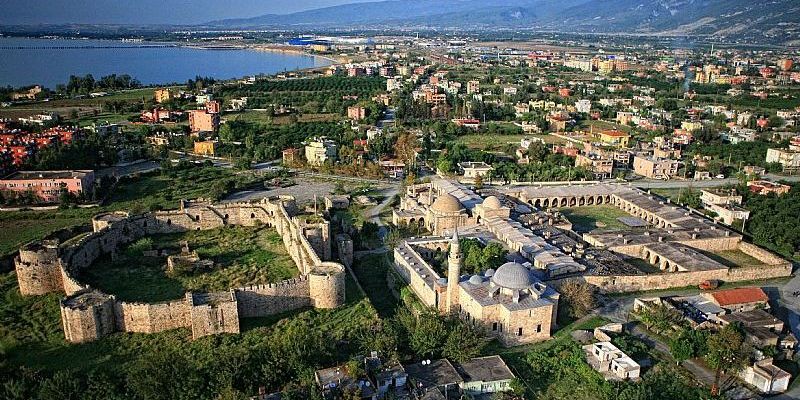Kırıkhan (or Kirikhan) is a city in the Kurdish region of Turkey. The city sits near the Mediterranean and the border of Turkey and Syria. According to the Kırıkhan government’s page, there are around 100,000 people who live in the area. While 28% of the population works in the industrial sector, 55% of the population works in agro-business.
There are two theories behind the name Kırıkhan. One says that it stems from the areas ability to fit numerous caravans during the times on intensive trade — forty one to be exact. Another says that it means “broken inn” in Turkish, a reference, perhaps, to the many inns on the road from Turkey to Syria.
Kırıkhan History
According to the Kırıkhan government page, the history of the city dates back to the time of Christ. There are archeological records that show Paleolithic relics, as well as Hittite, Assyrian and Persian artifacts. Alexander the Great was said to have liberated this area from the Persian empire, during which time a Kırıkhan “new order” flourished.
A series of 34 castle mounds have been found in the region. Excavation of these mounds have suggested that they were used for military and intelligence purposes during the Hellenistic period.
It is said that during the Ottoman Empire, Kırıkhan helped open trade routes between Aleppo and the rest of the Ottoman Empire.
Kırıkhan Trapessac Castle
Trapessac is a fortress located north of the town of Kırıkhan in Hatay Province, Turkey. The feudal castle was erected in the 11th century by the Knights Templar, together with the nearby fortress at Bagras. Once again, after a bitter defeat, Saladin gained the key to the fortress in 1188. The Templars, along with the Armenians, were in a great pursuit trying to overtake the fortress in 1237, but they were ambushed and sadly, they were defeated.
 4349total visits,4visits today
4349total visits,4visits today


Comments are closed, but trackbacks and pingbacks are open.